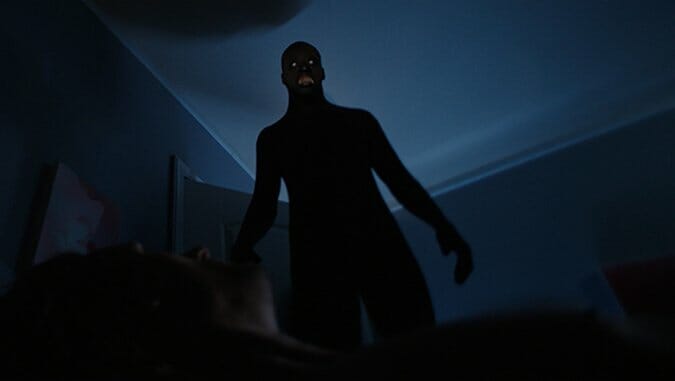The Nightmare

Documentarian Rodney Ascher makes movies with catchy concepts that, deep down, aren’t about the thing they claim to be. His 2012 debut Room 237 investigated the obsessive The Shining fans who have devoted their lives to exploring Stanley Kubrick’s film, picking the horror movie apart to find all the hidden messages they think the director embedded within its frames. At its core, though, Room 237 isn’t about conspiracy theories or even The Shining, but, rather, fandom and the way our favorite movies seem to expand in our minds, suggesting worlds of meaning their makers probably never intended.
Ascher’s follow-up, The Nightmare, is also a very human story, in that it isn’t what it claims to be. It purports to explore the phenomenon of sleep paralysis—but it’s really about how people try to make sense of the world around them.
In The Nightmare, Ascher interviews several sufferers of a rare condition in which one is neither asleep nor awake, trapped in bed unable to move as frightening visions surround the person. (Sometimes it’s a shadowy figure. Other times, it might be a metal claw that attacks the victim’s genitals.) We don’t get much background on Ascher’s subjects, which seems to be in keeping with the filmmaker’s similar technique in Room 237. Ascher wants to immerse us in his participants’ stories, leaving the totality of their lives a teasing mystery. Though, unlike in Room 237, which relied only on audio interviews, we do see his subjects speak in The Nightmare, helping to elicit sympathy for their plights.
The documentary moves between talking-head interviews and reenactments of the subjects’ experiences with sleep paralysis. Ascher, who directed a segment of the horror omnibus The ABCs of Death 2, stages the reenactments with actors, opting for a moody, ominous tone that wouldn’t quite be described as frightening—although there are a couple jump scares. More accurately, The Nightmare conjures a feeling of creeping dread, of lives burdened by the worry that, again tonight, horrifying images may descend upon them.
-

-

-

-

-

-

-

-

-

-

-

-

-

-

-

-

-

-

-

-

-

-

-

-

-

-

-

-

-

-

-

-

-

-

-

-

-

-

-

-








































